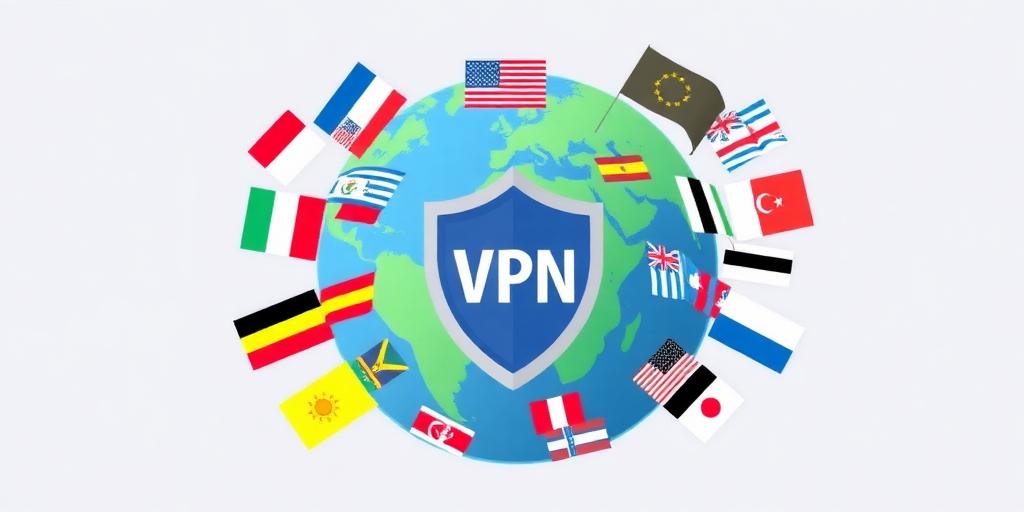When VPNs Fail: How Nations Are Blocking Circumvention Tools
Virtual Private Networks (VPNs) have long been considered reliable tools for circumventing internet censorship and maintaining online privacy. However, an increasing number of nations are implementing sophisticated techniques to block VPN usage, raising concerns about the future of unrestricted internet access. This post explores the methods these nations employ, the implications for users, and potential countermeasures.
Methods of VPN Blocking
Several methods are used to detect and block VPN traffic, each with varying degrees of effectiveness:
- IP Address Blocking: This is the most straightforward method. Governments or ISPs identify and block IP addresses associated with known VPN servers. While simple, VPN providers can circumvent this by regularly rotating their server IPs.
- Deep Packet Inspection (DPI): DPI allows network administrators to examine the content of data packets as they pass through the network. By identifying VPN protocols and signatures, DPI can block VPN traffic. This method is more sophisticated than IP address blocking but can be bypassed using obfuscation techniques.
- Port Blocking: VPNs often use specific ports for communication. Blocking these ports can disrupt VPN connections. However, VPNs can switch to different ports, including commonly used ports like 443 (HTTPS), to evade detection.
- DNS Filtering: By monitoring and filtering DNS queries, authorities can identify when users are attempting to connect to VPN servers. Blocking these DNS requests prevents users from resolving the VPN server's IP address.
- Traffic Analysis: This involves analyzing traffic patterns to identify VPN usage. Even if the VPN encrypts data, patterns such as connection timing and packet sizes can reveal VPN activity. Machine learning algorithms are increasingly used for this purpose.
Nations Blocking VPNs
Several countries are known for their extensive efforts to block VPNs:
- China: China's Great Firewall is one of the most advanced censorship systems in the world. It employs a combination of IP blocking, DPI, and traffic analysis to block many VPNs. Only government-approved VPNs are permitted, but even these are subject to strict monitoring.
- Russia: Russia has been increasing its control over the internet, requiring VPN providers to block access to websites banned by the government. Some VPN providers have complied, while others have left the Russian market.
- Iran: Iran heavily restricts internet access and actively blocks VPNs to prevent citizens from accessing dissenting or foreign content. Circumvention tools are often targeted and blocked.
- Turkey: Turkey has blocked VPNs during periods of political unrest or after terrorist attacks to control the flow of information.
- UAE: The United Arab Emirates prohibits the use of VPNs to commit crimes, which includes accessing blocked content. Although not a complete ban, it discourages VPN usage.
Implications for Users
The blocking of VPNs has significant implications for internet users:
- Restricted Access to Information: Blocking VPNs limits access to news, social media, and other online resources, hindering the free flow of information.
- Economic Impact: Businesses that rely on secure and private connections to communicate with international partners may suffer economic losses.
- Privacy Concerns: Without VPNs, users' online activities are more easily monitored and tracked by governments and ISPs.
- Reduced Digital Security: VPNs provide a layer of security, particularly on public Wi-Fi networks. Blocking VPNs makes users more vulnerable to cyber threats.
Circumventing VPN Blocks
Despite the increasing sophistication of VPN blocking techniques, several methods can be used to circumvent these restrictions:
- Obfuscation: VPN providers use obfuscation techniques to make VPN traffic look like regular HTTPS traffic, evading DPI.
- Stealth VPN Protocols: These protocols are designed to hide the fact that a VPN is being used. Examples include Shadowsocks and Obfsproxy.
- Bridge Connections: Tor bridges are unlisted relays that can be used to bypass censorship. VPNs can incorporate bridge connections to evade blocking.
- Custom VPNs: Setting up a personal VPN server can make it more difficult for authorities to identify and block the connection.
- Using Alternative Ports: Configuring VPNs to use standard ports like 443 (HTTPS) can help bypass port blocking.
The Future of VPNs
As nations become more adept at blocking VPNs, the cat-and-mouse game between censors and circumvention tool developers will continue. The future of VPNs depends on innovation in obfuscation techniques, the adoption of new protocols, and the willingness of users to adapt to changing circumstances. Staying informed and utilizing the latest tools and methods is essential for maintaining online freedom and privacy in an increasingly restrictive digital landscape.
Long-Tail Keywords:
- VPN blocking methods
- Circumventing VPN censorship
- Nations blocking VPN tools
- VPN obfuscation techniques
- Future of VPN technology









